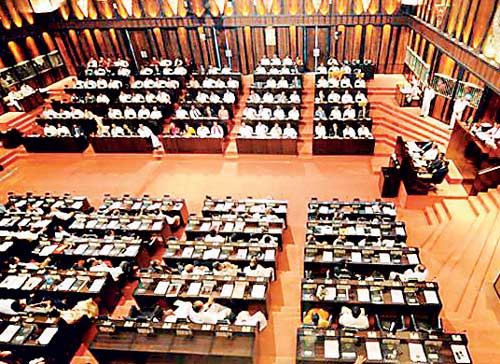"It is hoped that this initiative of a large group of intellectuals, professionals, civil society leaders and concerned citizens would help change the way the public affairs are managed in this country at least from now on."
.jpg)
Governments come and go but the problems that ordinary citizens face continue to get worse by the day. A casual look around the country and the socio-economic conditions under which most people live attest to this fact. This has been the experience of Sri Lankans over the last fifty years or more, despite a broadly democratic system of government during this period. While violent political conflict shattered peace and socio-political stability a number of time, particularly over the last several decades, giving rise to several waves of mass out-migration of citizens, resulting in the creation of large Sri Lankan communities in several parts of the world, the life chances of a majority of people living here have been adversely affected by persisting or even worsening issues in a whole range of sectors such as health, education, transport and environmental health. Meanwhile, people have been voting to change regimes periodically, hoping that their elected representatives would address their problems and create better conditions of life for them and their children. The continuing exodus of people of all walks of life in almost every direction of the world, looking for higher income or better living conditions clearly shows that the above hope has been shattered.
"The response from many quarters, including the highest level of government has been very encouraging"

What is clearly evident from the above is that democracy has not produced the outcome that a majority of citizens desire. Yet, most politicians continue to promise more of the same at successive elections, namely development and hand outs. While development increasingly became synonymous with big construction projects that can be declared open by leaders in a big ceremony on television, welfare became an integral part of patron-client politics whereby much of the public resources are channelled through political networks, not through established State institutions managed by public officials in keeping with rules and regulations. This sort of practise encourages more and people to expect personal favours from their political representatives. The latter in turn do everything to build up his personal network of political supporters, rather than working with their party colleagues to find collective solutions to problems faced by their voters. In the absence of collective solutions to individual problems, more and more people look for their own solutions. The present state of transport in the country illustrates this point in no uncertain terms. The situation is not any different in many other sectors such as employment, education, housing and health.
It is obvious that there are no individual solutions to most of the common problems faced by citizens. So, enlightened citizens hope that governments would strive to find collective solutions through discussion and debate based on available knowledge and information. This is what they expect their representatives in the Parliament to do. What we have witnessed in the recent past is a far cry from such a practise. The leaders have demonstrated clearly that they have different ideas about Parliament. People only have to look at the line-up of people who were often nominated to Parliament by major political parties on their national lists.
It is obvious that the above situation must change, in order to make sure that democracy remains relevant and meaningful to hapless masses. We need to make the highest body of people’s representative a forum where political leaders discuss and debate collective solutions to myriad of problems the people are confronted with ranging from precarious work through poor education to national disunity. They should discuss and debate evidence-based national policies to deal with social, economic, political and cultural issues rather than exchange filth across the political divide. The role of the intellectuals is not go behind politicians to find a lucrative posting but engage in their professional work with independence and integrity.
The recently launched campaign for sound national policies has made the above point in no uncertain terms. The response from many quarters, including the highest level of government has been very encouraging. It is hoped that this initiative of a large group of intellectuals, professionals, civil society leaders and concerned citizens would help change the way the public affairs are managed in this country at least from now on. The January 8 people’s verdict is a clear message to the political parties and their leaders that they should not use the pressing issues in the country to come to power but address them in a systematic and reasonable fashion so that the situation in the country would be better tomorrow. It is only hoped that the message would elicit a positive and reasonable response from the powers that be. People who have suffered silently for many years deserve such a response.
.jpg)
